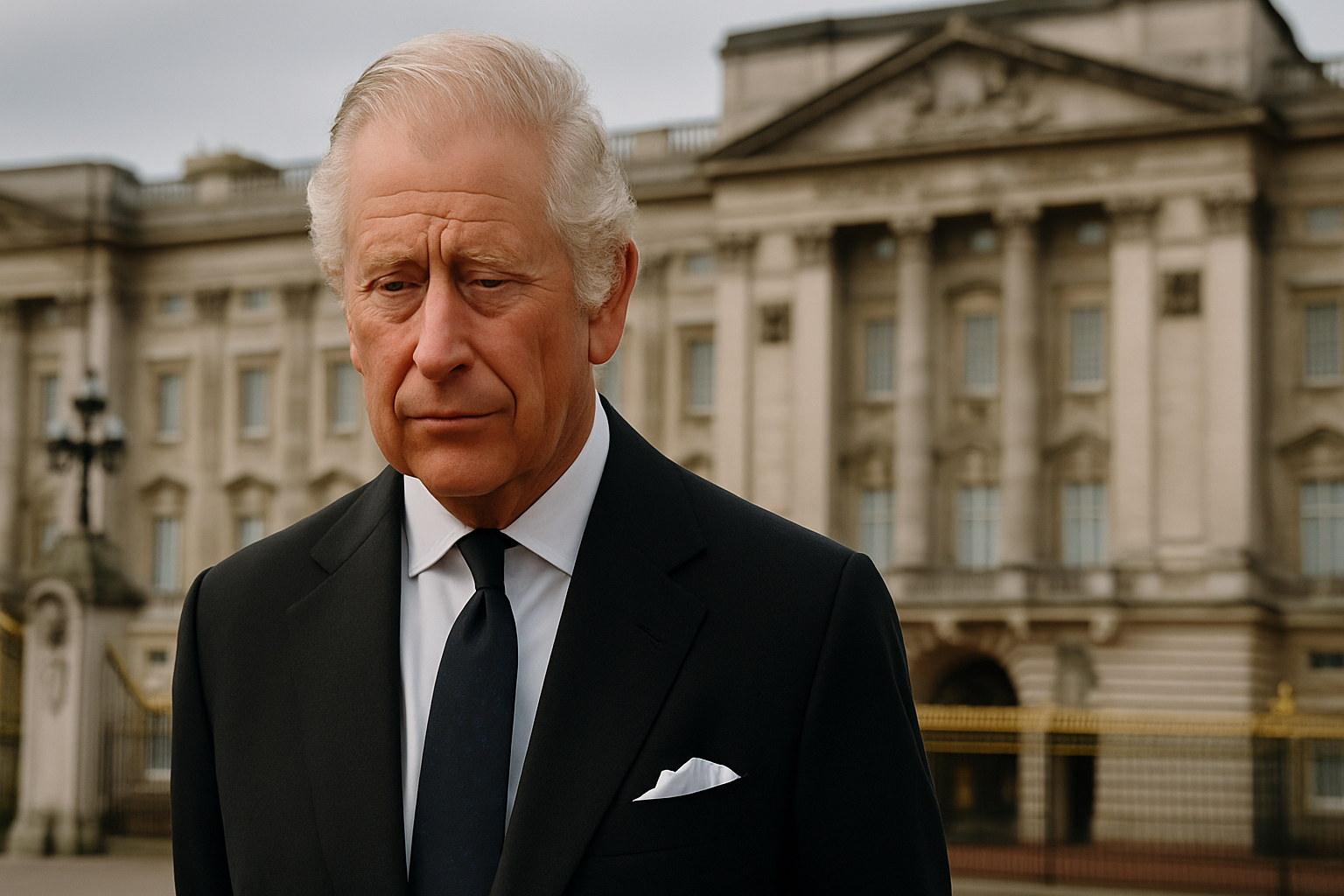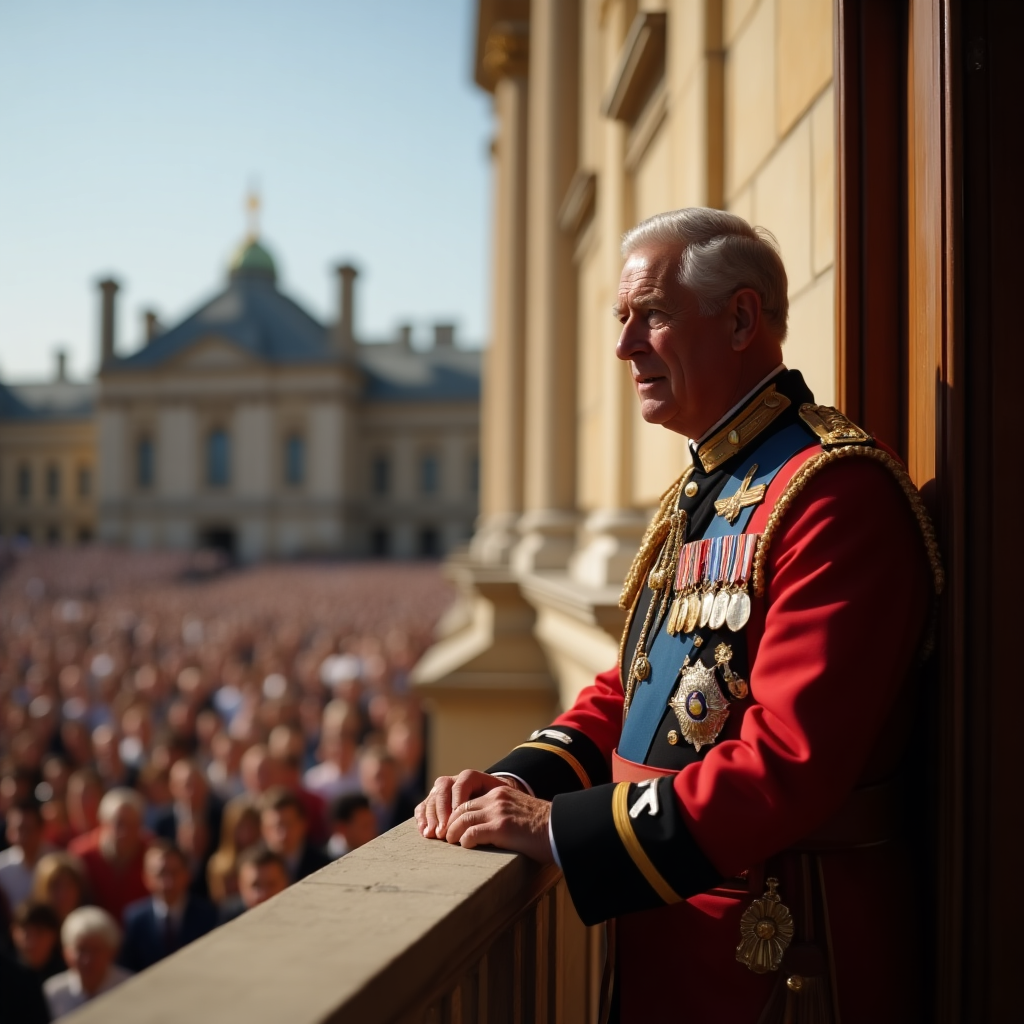In early 2025, the world awoke to a headline that shook the foundations of the British monarchy: King Charles health 2025 update revealed a serious medical issue. This revelation, coming just three years after his ascension to the throne, triggered immediate reactions from governments, royal watchers, and the public alike. With his transparency, King Charles sparked a new kind of dialogue about leadership, aging, and responsibility. Historically, monarchs have kept their health concerns private. But in a shift toward modern accountability, King Charles chose to go public. His statement emphasized stability, duty, and clarity about the monarchy's future. Given his pivotal role in a rapidly evolving Britain, his health isn't just personal—it's a matter of national and even global interest. This moment signifies much more than a medical update; it reshapes public perception and tests the monarchy’s resilience in King Charles health 2025 era.

A Modern Monarch in a Traditional Role
King Charles has long been seen as a bridge between the past and present. He ascended the throne in 2022, bringing decades of public service and progressive causes into the royal spotlight. His health status in 2025 underscores the pressures faced by modern monarchs, especially those attempting to balance ceremonial duties with intense public scrutiny. Unlike previous generations, Charles understands that transparency earns trust. His candid approach has opened the monarchy to new levels of scrutiny and, at the same time, empathy. By addressing his condition, he demonstrates vulnerability—a rare quality in royalty. It also highlights how public figures must now navigate both tradition and contemporary expectations. In a digital age where news spreads rapidly, silence is no longer sustainable. His revelation aligns the monarchy with modern governance models, promoting honesty, accountability, and proactive communication.
Public Reaction and National Sentiment in the UK
Across the United Kingdom, King Charles’s announcement sparked a spectrum of emotions. Some citizens expressed concern for his well-being, while others questioned the monarchy’s continuity. According to a recent BBC public opinion poll, over 68% of Britons appreciated the King’s transparency, with many citing it as a sign of modern leadership. The same poll noted a 15% increase in public support for Prince William taking on more royal duties. This shift in sentiment indicates a readiness for generational transition. Yet, it also reflects increased emotional investment in the royal family's health and stability. Politicians, media analysts, and academics have discussed the broader implications, from constitutional preparedness to public morale. The public is no longer just a passive observer; they are stakeholders in the institution. In 2025, the monarchy's survival hinges not just on tradition, but on adaptability and openness.
Global Implications: The Monarchy's Role Beyond Britain
While the UK is home base, the British monarchy remains a global institution, with influence stretching across the Commonwealth and beyond. King Charles’s health condition has prompted leaders in Australia, Canada, and the Caribbean to reassess their ties with the Crown. As the symbolic head of state for over a dozen countries, his wellness affects diplomatic relations and cultural identities. For instance, Australia's Prime Minister recently reiterated their commitment to a potential 2026 referendum on becoming a republic, a move now gaining renewed momentum. Global media, from CNN to the Sydney Morning Herald, have amplified the story, framing it as a turning point for constitutional monarchies. It reveals a stark reality: in today’s interconnected world, royal health is geopolitical. This situation urges policymakers to evaluate long-term strategies, especially concerning succession and soft power diplomacy.
The Succession Debate: Spotlight on Prince William
King Charles’s revelation has inevitably shifted attention toward Prince William, the next in line to the throne. With increasing public and institutional support, many believe it’s time for a gradual power transition. William and Kate, Princess of Wales, have already taken on more engagements, signaling readiness. Observers point to William's extensive experience, education, and popularity as assets in maintaining stability. The Crown's continuity relies heavily on public trust, which William enjoys in abundance. Furthermore, constitutional provisions, such as the Regency Acts, offer legal pathways should the King become unable to perform his duties. However, Charles has emphasized his commitment to continue, urging calm and measured responses. The coming months will be pivotal. This moment in 2025 might not just be about managing illness but managing institutional evolution—and ensuring that transition, if and when it occurs, is seamless.
Health, Transparency, and Modern Leadership
Leadership in 2025 demands more than presence; it demands transparency, adaptability, and authenticity. King Charles’s decision to disclose his health condition reflects these evolving expectations. By doing so, he reinforces a public model of dignified vulnerability. Experts argue that transparency in leadership leads to greater public confidence and reduced speculation. In an era plagued by misinformation, Charles’s proactive statement is both protective and empowering. It also resonates with current public health trends. Mental and physical well-being are now key leadership attributes, not liabilities. Leaders worldwide—from presidents to CEOs—are embracing this shift. The King’s openness aligns the Crown with that global trend. It signals that honesty is strength, not weakness. This development should encourage other institutions to follow suit, fostering a more empathetic and accountable public sphere.
FAQs About King Charles’s Health and the Monarchy in 2025
1. What health condition does King Charles have?
While details remain private, the palace confirmed it is a manageable but serious medical issue requiring ongoing care.
2. Will Prince William become king soon?
There are no immediate plans for abdication, but Prince William is increasingly assuming royal responsibilities.
3. How has the UK public reacted?
Surveys show increased support for transparency and a growing interest in Prince William’s leadership.
4. What does this mean for other Commonwealth nations?
Some are reevaluating their constitutional ties, especially Australia, which is considering a referendum.
5. Why is transparency from monarchs important?
It builds public trust, reduces misinformation, and modernizes the institution for contemporary expectations.

